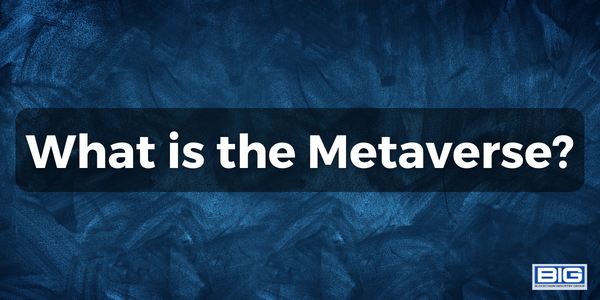
The concept of the metaverse has been gaining significant attention and generating curiosity in recent years. Coined by Neal Stephenson in his science fiction novel “Snow Crash” and popularized by tech enthusiasts, the metaverse refers to a virtual reality space where people can interact, explore, and engage with digital environments and other users.
In this in-depth article, we will delve into the metaverse, examining its definition, components, and potential implications for various industries.
Defining the Metaverse: Blurring the Lines Between Real and Virtual
The metaverse can be understood as a collective digital universe composed of interconnected virtual worlds, platforms, and augmented reality experiences. It goes beyond individual virtual reality games or social networks, aiming to create a seamless and immersive digital space that mirrors or enhances aspects of the physical world. It enables users to navigate and engage with computer-generated environments, often through avatars, allowing for social interactions, commerce, and various activities.
Components of the Metaverse: Virtual Worlds, Augmented Reality, and More
The metaverse comprises several components that work together to create a cohesive virtual experience. These components include:
- Virtual Worlds: These are computer-generated, immersive environments where users can explore, interact with objects, and communicate with other users. Examples include platforms like Second Life and Decentraland.
- Augmented Reality (AR): AR overlays digital information and experiences onto the physical world. It allows users to interact with virtual elements while still being present in their real environment. Applications like Pokémon Go and Snapchat filters are early examples of AR experiences.
- Virtual Reality (VR): VR creates a fully immersive digital environment that users can enter and explore through the use of specialized headsets. It provides a sense of presence and allows for more immersive interactions and experiences. Platforms like Oculus and HTC Vive are popular VR devices.
Examples of the Metaverse in Action
The concept of the metaverse is already manifesting in various forms and industries. Here are a few notable examples:
- Gaming: Virtual worlds like Roblox and Fortnite offer multiplayer experiences where millions of users can interact, play games, and create their own content within the virtual environment.
- Social Platforms: Facebook’s Horizon and VRChat provide social experiences within virtual worlds, allowing users to meet and interact with others from around the globe.
- Virtual Marketplaces: Decentralized platforms like CryptoPunks and NBA Top Shot leverage blockchain technology and non-fungible tokens (NFTs) to enable users to buy, sell, and trade digital assets and collectibles within the metaverse.
- Education and Training: Platforms such as Engage and AltspaceVR are exploring the potential of the metaverse for virtual classrooms, conferences, and immersive training simulations.
Implications and Future Potential of the Metaverse
The metaverse holds tremendous potential for transforming various industries and aspects of our lives. Some implications and possibilities include:
- Economy and Commerce: The metaverse could create new economic opportunities, allowing for virtual businesses, digital currencies, and virtual goods marketplaces.
- Social Interactions and Connectivity: People could connect and interact with others globally, transcending physical boundaries and creating new avenues for communication, collaboration, and shared experiences.
- Healthcare and Therapy: Virtual reality experiences within the metaverse could facilitate immersive therapies, mental health support, and medical training simulations.
- Education and Learning: The metaverse could revolutionize education by providing interactive and immersive learning experiences, enabling students to explore historical sites, engage in scientific experiments, and collaborate with peers worldwide.
As the metaverse continues to evolve, it is crucial to consider ethical, privacy, and inclusivity concerns, ensuring that access and benefits are accessible to all.
Top 10 Tourism Experiences in the Metaverse
—
Top 10 Unexpected Consequences from the Metaverse
—
Top 10 Ways to Make Money in the Metaverse
The metaverse represents a vision of a connected digital universe where individuals can explore, interact, and collaborate within virtual environments. It blurs the lines between the real and virtual worlds, encompassing virtual reality, augmented reality, and virtual worlds. With examples in gaming, social platforms, virtual marketplaces, and education, the metaverse is already making its mark in various industries. It offers the potential to transform the economy, social interactions, healthcare, education, and more.
The metaverse holds great promise, and its impact on society is yet to be fully realized. As technology advances and more individuals engage with the metaverse, it will undoubtedly reshape our digital landscape and redefine how we interact with and perceive the world around us.



